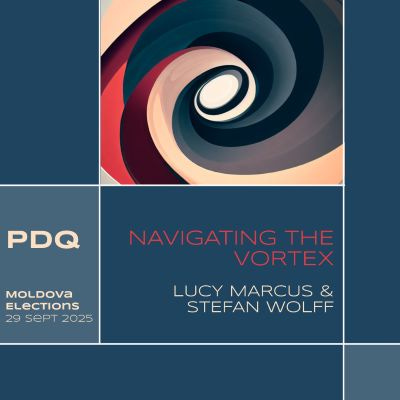With almost all of the votes counted in yesterday’s parliamentary elections in Moldova, the ruling pro-European Party of Action and Solidarity of President Maia Sandu has achieved a slim overall majority of just over 50% of the vote.
More importantly, perhaps, it has garnered more than twice the votes of the main pro-Russian opposition party Patriotic Bloc, which has just under 25% of the vote.
While Sandu’s party, as expected, did very well in the diaspora vote with almost 80% of votes cast in its favour, it also convincingly beat the Patriotic Bloc in the vote in Moldova with 44% versus 28%.
In another sign of the changing tide, the party also doubled its vote share in the Russian-controlled break-away region of Transnistria.
Turnout in the elections, however, has been low again. Just over 52% of eligible voters went to the polling stations. This is slightly higher than in the three previous parliamentary elections in 2019, 2020, and 2021, but below the turnout in the second round of last year’s presidential elections.
At the end of the day, the results also reflect the long-standing, and by most accounts, deepening polarisation in Moldova between the pro-European and pro-Russian camps. The fact that Sandu’s party achieved an overall, and only slightly reduced majority again, indicates that its support base has held up remarkably well amid unprecedented Russian election interference and the serious economic problems that Moldova has faced for many years, but especially since the start of Russia’s full-scale invasion of Ukraine in February 2022.
While slightly weakened compared to the 2021 parliamentary elections, achieving more than 50% of the vote — and probably gaining 55 seats in the 101-seat parliament — is a remarkable achievement for Sandu’s party in these circumstances. It demonstrates the strength of support for the country’s European path among the general population. If the results of other parties and party blocs that claim to be pro-European are taken into account, this means that a solid majority of Moldovans favour membership in the EU over closer ties with Russia.
The outcome of the parliamentary elections yesterday, as well as of the presidential elections last year, also demonstrates the limits of Russia’s influence campaigns.
Despite spending millions on vote buying and disinformation, Russia has not been able to turn Moldova into a country in which a majority of the population would want to jeopardise their European future.
This is an important signal well beyond Moldova and will be noted with significant relief in Chisinau, Brussels, and other European capitals.
We hope you’ll share Navigating the Vortex with anyone you think might find it of interest. Also, you can listen to our podcast editions via the website and on all major podcast platforms, including:














